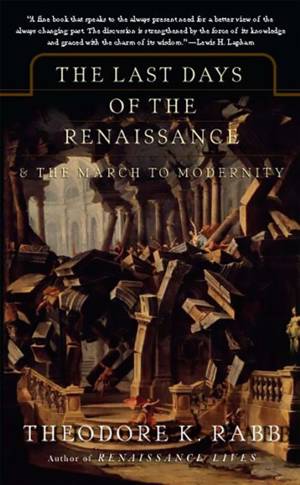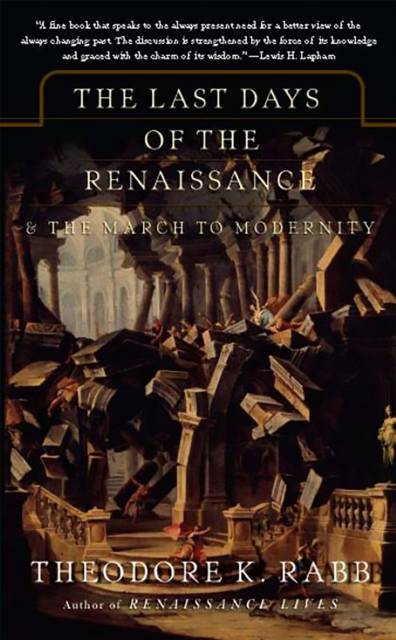
- Afhalen na 1 uur in een winkel met voorraad
- Gratis thuislevering in België vanaf € 30
- Ruim aanbod met 7 miljoen producten
- Afhalen na 1 uur in een winkel met voorraad
- Gratis thuislevering in België vanaf € 30
- Ruim aanbod met 7 miljoen producten
Omschrijving
There is little debate that the Renaissance began at the end of the fourteenth century. Its end, though, is much more difficult to pin down. Here, for the first time, renowned classicist Theodore Rabb defines the changes that marked the shift away from the Renaissance to Modernity, and explains why these changes took place. The European Renaissance is usually characterized by the belief that a distinct antique civilization represented the ideal for all human endeavors. But there were other unities that defined the era: a shift in the role of the aristocracy from a warrior class to a cultural elite, a growth in education, a more thoughtful probing into the sciences, and the use of the arts for nonreligious purposes.By the dawn of the seventeenth century, four developments had swept over the world, altering these unities and ending the Renaissance: a break with the period's obsession with the past, which invited openness to innovation; a quest for central political control to cure increasing instability; a change in direction of people's passion and enthusiasm; and a new commitment to reason. With thoughtful, wide-lens scholarship and close, detailed looks throughout at the significant moments of change, Rabb offers us a radically new understanding of one of the most pivotal shifts in modern history.
Specificaties
Betrokkenen
- Auteur(s):
- Uitgeverij:
Inhoud
- Aantal bladzijden:
- 280
- Taal:
- Engels
Eigenschappen
- Productcode (EAN):
- 9780465068029
- Verschijningsdatum:
- 1/06/2007
- Uitvoering:
- Paperback
- Formaat:
- Trade paperback (VS)
- Afmetingen:
- 139 mm x 200 mm
- Gewicht:
- 299 g

Alleen bij Standaard Boekhandel
Beoordelingen
We publiceren alleen reviews die voldoen aan de voorwaarden voor reviews. Bekijk onze voorwaarden voor reviews.









